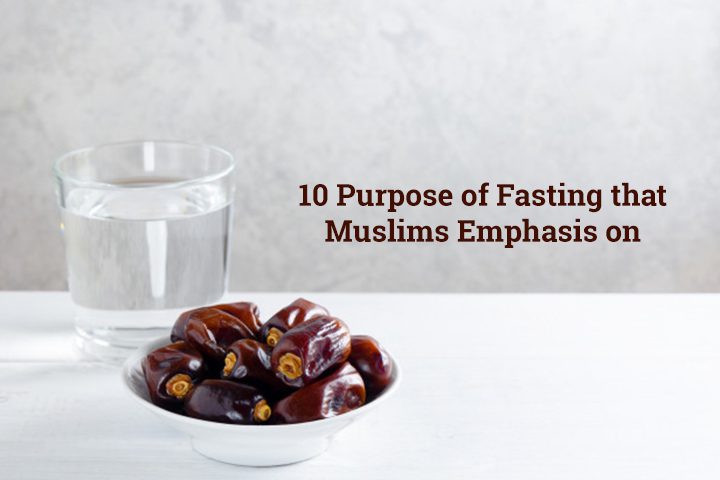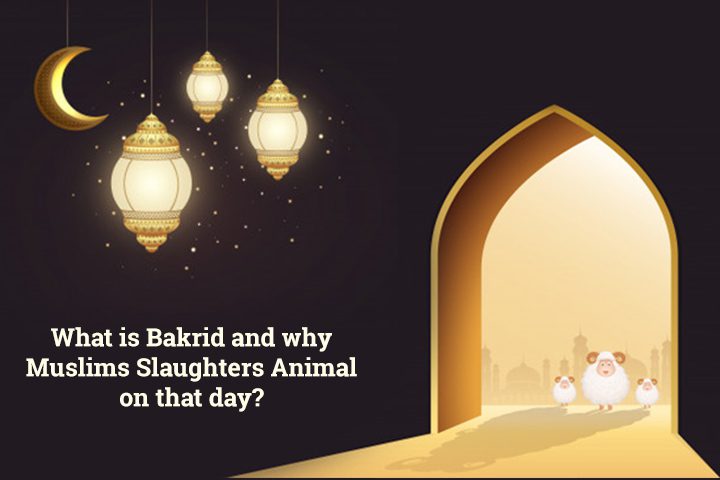Fasting in Ramadan is a Gift from God
The chance to observe fasting in Ramadan is a gift from God, permitting us to develop a lot as human beings, empowering us to turn out to become more caring, mindful, kind, and appreciative.
Fasting in Ramadan is an exceptional chance to grow spiritually and oversee ourselves, our inner selves, the nafs, the unconscious automatic primitive that will in general rule our lives when unchecked.
By observing fasting in Ramadan, a Muslim has a significant and extraordinary chance to turn out to become more tranquil, present and spiritual — the actual objective of Islam.
While as a general rule the rewards for fasting in Ramadan are incalculable and its full benefits known only to God, coming up next are ten vital Purpose why Muslims are urged to notice fasting in Ramadan.
1. A Pillar of Islam
The establishment of Islamic spiritual practice is known as the Five Pillars of Islam, which structure the basis for a spiritual culture intended to give an ideal climate to self-awareness and spiritual development.
Fasting in Ramadan is one of the Five Pillars of Islam, comprising perhaps the main otherworldly practices intended to engage an individual in defeating oneself and rising above the self-image, the one true veil between a person and his or her Creator.
2. Spiritual Purification
One of the essential advantages of fasting in Ramadan is spiritual purification, the fundamental objective of Islamic Spirituality.
Even though we will in general think about the brain, body and soul as discrete components, actually they are completely associated and interrelated, and improvement in any one normally impacts improvement in the others too.
Fasting in Ramadan purifies the brain, body and soul, prompting more prominent lucidity, affectability and wellbeing.
3. Health
It has now been scientifically documented that the absolute best practice for improving human health and life span is the decrease of intake and consumption.
Fasting in Ramadan permits the digestive system, the engine driving force of the body, to rest from the normal requests of handling and separating food, freeing up system resources to cleanse and purify the body of accumulated toxins, in this way allowing more compelling recuperating and tissue fix.
Fasting in Ramadan keeps the body healthy and energetic (if one doesn’t indulge when breaking quick).
4. Family and Community
Perhaps one of the best advantages of fasting in Ramadan is reestablishing solidarity and developing relationships with one’s family and local area.
One who observes fasting in Ramadan can genuinely know the excellence and delight of breaking fast with others, celebrating the gift of life every day for thirty days with friends and family.
Fasting in Ramadan is genuinely one of the best friendly encounters a person will at any point insight, and this is perhaps the main parts of this special unique pillar of Islamic practice.
5. Gratitude
The facts confirm that one by and large does not understand what he or she has until it’s gone or not accessible, and by fasting in Ramadan, Muslims become intensely mindful of the limitless wealth of heavenly favor God Almighty has blessed humankind with, particularly with regards to sustenance.
The development of appreciation is a core purpose of Islam, and few spiritual practices develop appreciation as does fasting in Ramadan!
6. Humility and Selflessness
By fasting, a Muslim acknowledges how dependent we as human beings are upon the heavenly grace of God for survival, and humility is a characteristic consequence of this realization.
For the most part, we take things for granted and become heedless because of living on the world, dunya, yet by fasting in Ramadan, we are consistently helped to remember our fragility, driving us to humility, reverence, devotion and selflessness — essential objectives of Islamic Spirituality.
7. Empathy and Compassion
Although we live in a universe of natural abundance, of heavenly grace and providence, unfortunately due to lack of empathy and solidarity among people, there are numerous all through the globe who battle with hunger, poverty, lack and scarcity.
At the point when a Muslim observes fasting in Ramadan, the individual feels the hunger that many experience day by day as a normal consequence of their circumstances.
By fasting, we build up the holy qualities of empathy, getting more mindful of our inborn association and unity with all human beings paying little heed to lines or marks that make artificial separation among the citizens of humans.
8. Restraint and Self-Discipline8. Restraint and Self-Discipline
The advanced world and its culture way of life are to a great extent characterized by materialism, consumption, and instant gratification of desires. This outcomes in the diminishment of human awareness, the relapse of planetary culture and the concealment of the spirit.
However, by fasting, a Muslim deliberately curtails this unhealthy norm by intentionally practicing restriction and self-restraint, isolating oneself him or herself from the animal kingdom which is administered by the oblivious drive to satisfy one’s prompt needs and wants.
Fasting in Ramadan is consequently a fundamental practice for attaining true freedom and autonomy from dunya, the external universe of structure and appearances, and for the freedom of the spirit from oneself, the mind body that is unconsciously driven by dread and the battle for survival.
9. Simplicity and Non-Attachment
When living without order and restriction, life rapidly turns out to be excessively complicated, prompting a significant burden that outcomes in pointless pressure, nervousness, misery, and trouble.
By fasting, we limit overabundance and extravagance, encouraging the re-visitation of effortlessness and non- attachment, delivering one from reliance on dunya so contributing to psychological health and happiness.
10. Focus
With the consistent requests of modern life, it’s very simple to get lost and fail to remember what our identity is, thus, to unconsciously forget our divine purpose and destiny.
Without steady update, we become lost in the dream and disengaged from the real world.
Fasting in Ramadan for thirty days is an incredible practice in reestablishing focus, heading, equilibrium and reason to our lives.








